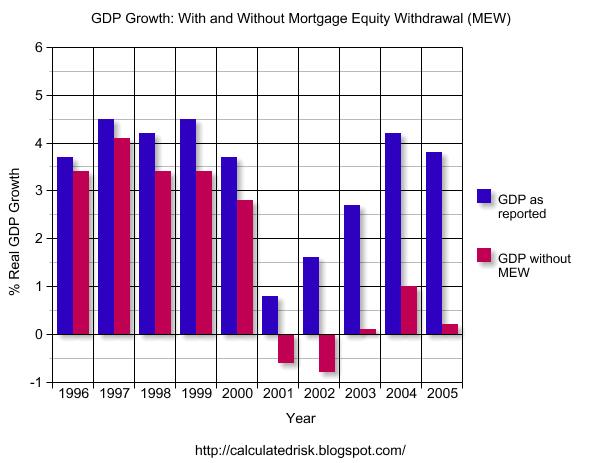Dave Winer posts some pix from his trip to New Orleans. My 2002 photos are here.
Monthly Archives: December 2005
City of Madison Comprehensive Plan
A couple of hours before the council meeting in the same room, they attended a presentation about the City of Madison Comprehensive Plan. This plan, mandated by state law, and a work in progress over the last couple of years, will serve as a long-term roadmap for the city’s infrastructural future. It is also up for a vote on Tuesday, Dec. 13 by the full council, though it is likely to be referred to a subsequent meeting in early January.
Ag Subsidies Revealed
For now, however, these subsidies are here — but who, exactly, gets them?
For that answer, I encourage you to check out the Environmental Working Group’s Farm Subsidy Database. Through many, many FOIA requests, they have produced. an interactive website chock full of interesting facts. For example:
Half of all subsidies go to only 5% of Congressional districts. Four commodities —corn, wheat, rice and cotton— account for 78 percent of all ag subsidies. EWG also has an interesting proposal to reallocate the ag money away from subsidies but towards rural areas where farmers actually generate high value-added goods already.
Calculated Risk: GDP Growth With and Without Mortgage Extraction

Calculated Risk:
The recent Flow of Funds report showed that household mortgages increased a record $289.5 Billion in Q3 2005. Using a simple formulation for Mortgage Equity Withdrawal (MEW), MEW was $171 Billion in Q3.
Tommy Thompson Delays Getting ID Chip Implanted
Former Wisconsin Gov. Tommy Thompson seems to be in no rush to be implanted with an ID chip, as he told interviewers he would in July.
A TV network recently interviewed Thompson, a former U.S. secretary of health and human services, after he was named to the board of directors of VeriChip, which sells a radio-frequency ID chip that can be implanted under the skin. The chips alarms privacy advocates who worry whether government and corporations will abuse the technology.
What employees think about consumer-directed health plans
Vishal Agrawal, Paul D. Mango, and Kimberly O. Packard:
Eager to curb the rising cost of health care, many US insurers and employers are considering consumer-directed health plans (CDHPs), which are designed to lower costs by giving consumers more responsibility for managing their own health care spending.1 Indeed, a survey indicates that this interest is more than justified. We found that the plans encourage value-conscious behavior, increase the consumers’ level of engagement with their well-being, and may even promote behavior that leads to better long-term health.
In March 2005 we surveyed 2,500 consumers, 1,000 of whom had been enrolled in a CDHP for at least one year.2 We also conducted extensive interviews with 25 of these CDHP consumers and with seven benefits managers who administer the plans.3 Our goal was to learn how consumers’ behavior changes when they become responsible for a greater share of their health care costs.
Newspapers as Mainframes
Jeff Jarvis and others have been discussing the analogy of newspapers as mainframe computers. In essence, they are analagous: mainframes represented centralized processing, distribution and control. PC’s came along and blew that up. Mainframes still exist, but are being replaced by clusters of smaller, generally clustered linux computers. The migration continues to ever smaller network devices.
There is another analogy: Newspapers as legacy media. I recall discussing this last fall with Jay Rosen at Bloggercon. The software business uses the term legacy to describe mothballed code, or something that is no longer updated. Generally, this term is used when a customer is moving from software product/platform a to product/platform b (DOS to Windows, Unix to Linux, terminals to client/server to web services).
There will always be journalism, some great, some not so great. It will simply be delivered many different ways.
Ford’s Big New SUV
Just two months after it pulled the plug on the massive Ford Excursion, the Detroit News said the automaker is preparing to unveil a vehicle tentatively called the “Ford Everest.”
“Excursion was just too much. It went overboard,” Joe Langley, and analyst with CSM Worldwide, told the newspaper. “But there’s still a market for a (jumbo) SUV.”
The Excursion, launched in 2000, was quickly dubbed the Ford Valdez by critics; and Ford (down $0.02 to $8.16, Research) ended production earlier this year as gas prices topped $3 a gallon.
VC’s Survey Opportunities
What about future trends, asked Sahlman. Many venture capitalists made money in enterprise software, until the space was saturated. Will venture capitalists have an impact in fields relating to healthcare, education, and the environment—all areas that show a great demand for new solutions?
“Clean energy is big on the West Coast,” said Reiss. “Venture capitalists haven’t traditionally invested in those areas that you mentioned . . . but given the amount of money that’s in the business, somebody is going to try, and somebody will be right.”
Fidelity Investments Podcast
Podcasts go mainstream – fast:
Is this the right move for you? If so, what does it take to be a successful RIA? What challenges lie ahead? And what steps should you take to prepare for a seamless transition to running your own firm? Listen to this program to gain answers to these and many more questions about what it takes to establish an RIA.
